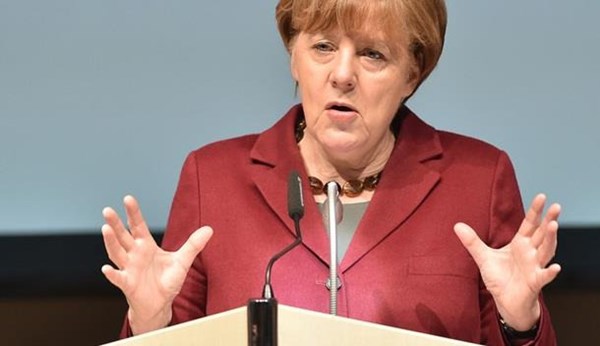Merkel decides to no longer defend Nord Stream 2
The poisoning of Alexei Navalny, who, according to Germany, was poisoned by a Soviet-era nerve agent Novichok, seems to put an end to the North Stream-2 gas pipeline, which cost 10 billion euros and was stopped by U.S. sanctions.
German Chancellor Angela Merkel, who for years defended the pipeline from attacks by the United States and Eastern European countries, abandoned her unequivocal position.
Berlin will not decide on its own the fate of the project, which was half paid for by European investors. The decision on Nord Stream 2 should be "pan-European, not German," Merkel told members of her party Christian Democratic Union (CDU).
German government spokesman Steffen Seibert explained that Merkel does not currently have a position on Nord Stream 2.
At the same time, only two weeks ago such a position was expressed openly. On August 28, the Chancellor said at a press conference that Nord Stream 2 should be completed, it was an "economic project" and "it is not feasible to link it to the Navalny’s case."
The first member of Merkel's cabinet to give a "signal" to the Kremlin was Foreign Minister Heiko Maas, if Russia "in the next few days" does not begin to help understand what happened to Navalny, Germany "will have to consult with our partners about the response," he told Bild am Sonntag.
According to Merkel, the EU's reaction to the situation around Navalny will follow after receiving explanations from Russia. Berlin continues to wait for a response from Moscow, while the Kremlin is already preparing to blame Germany.
"What is happening around Navalny proves more and more that this is a planned action to impose new sanctions and try to restrain Russia's development", State Duma Speaker Vyacheslav Volodin said last week.
"The European Union, the NATO states obviously do not like that Russia's economy is strengthening every year and its influence on world processes is growing," he explained.
Germany transfers the decision on Nord Stream 2 to the European level, where the project has almost no supporters. It was the European Commission that pressed for the adoption last spring of amendments to the gas directive requiring the project to comply with competition rules: Gazprom cannot be both a gas seller and a pipe owner and must allow other suppliers to use it, leaving 50% of capacity empty.
Even if the Nord Stream 2 project is scrapped, it is unlikely to affect Europe's gas markets. The EU is inundated with cheap gas, and there are no signs of a sharp increase in demand.
Since 2015, when the decision was made to build Nord Stream 2, the cost of producing renewable energy has decreased, and there are fewer arguments in favor of using fossil fuels. Demand for natural gas will not change in at least the next five years, the International Energy Agency predicts. Environmental resistance to the construction of new gas infrastructure is also growing after the European Commission announced plans for a complete divestment of fossil fuels by 2050.
